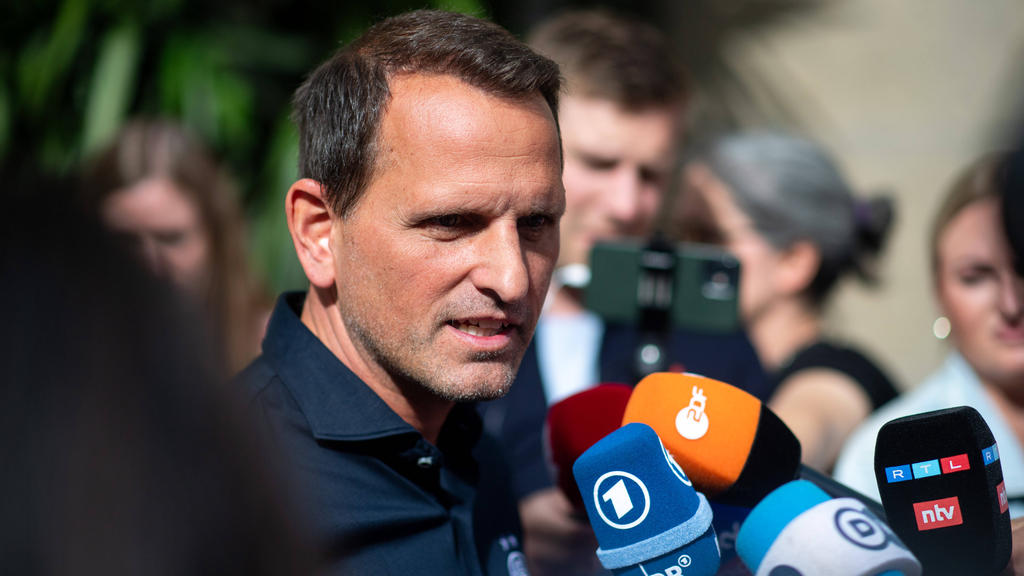Germany questions footballing future

As the dust settled on Germany's shock group stage exit from the Women's World Cup, officials and media sweated over the problems ingrained in the country's once proud football set-up.
Germany, ranked second in the world and one of the favourites for the tournament, drew 1-1 with South Korea on Thursday.
With four points after one win, one draw and a loss, the side finished third and were sent home before the knockouts for the first time.
Speaking on Friday, the German FA's sporting director for the women's game, Joti Chatzialexiou said the organisation had "no clear answers" for the early exit, but suggested past successes may have led to complacency.
"Due to our success in the female division, we may have rested on our laurels once or twice."
Only the USA have more than Germany's two World Cups, while the eight European Championship titles are four times that of Norway, the only other multiple winners.
The dramatic fall has been mirrored by the German men, who have now been eliminated at the group stage in the past two World Cups after having made it past that stage every time dating back to the 1930s.
The sudden fall -- Germany remains the only nation to have won World Cups in both men's and women's football -- has some questioning the nation's sporting foundations.
Despite making it to the Euro 2022 final and losing in extra time to England, Chatzialexiou admitted the German FA had recognised a number of issues in need of repair.
"It's not like we haven't been trying to address things," the 47-year-old said, explaining the German FA had "consciously developed a project for the future of male and female football" over the past five years.
The sporting director pointed out that South Korea bettered the Germans in one-on-one situations, implicitly questioning the players' skills and desire to fight.
"When I see the one-on-one stats, then we didn't show enough in the tournament to be successful."
German men's coach Hansi Flick has previously criticised the country's youth academy set-up for lagging behind other European nations, pointing out that star youngster Jamal Musiala "has been trained in England, not in Germany."
"We really have to focus on the training," Flick said in December after his side were eliminated in Qatar.
Speaking with German tabloid Bild on Friday outside the team's Brisbane hotel, captain Alexandra Popp said she still did not have any answers after a sleepless night.
The 32-year-old veteran would not be drawn on her future and batted away questions about the quality of coach Martina Voss-Tecklenburg's tactics, instead saying the players needed to "take a look at ourselves first".
"We need time to review the whole thing. We players need to ask ourselves critically whether we've done everything."
Popp, one of the few Germans to emerge unscathed after a strong individual tournament with four goals, said the Euro 2022 success "showed what we can achieve".
Much like the recriminations after the men's early eliminations in Russia and Qatar, the German press blamed the team's arrogance and complacency for the early exit.
Sports newspaper Kicker suggested the side lacked the necessary aggression and nous, saying "too much was about stroking koalas and not enough tactical replacements were tested".
The newspaper revealed that the team were so confident of qualifying top of their group that travel plans had not been made in the event of finishing second, let alone a group stage exit.
Even German FA boss Bernd Neuendorf had been so confident of the side's progression to the knockouts that he booked to arrive ahead of the round of 16, unlike in Qatar where he attended each of the men's group stage matches.
Neuendorf spoke to German TV network ZDF on Friday, saying he was confident fans would still embrace the 2024 men's Euros on home soil despite the disappointing performances.
"I am quite confident that this euphoria will come," he said while admitting "we need a sense of achievement, we need victories."
The German FA has announced a press conference for Saturday, leading to speculation Voss-Tecklenburg, who has a contract to 2025, may step down.
But whether she stays on board or not, the problems in German football run deeper than a simple change of coach may remedy.





![World Cup [Women]](https://s.hs-data.com/bilder/wettbewerbe/50/300.gif)
